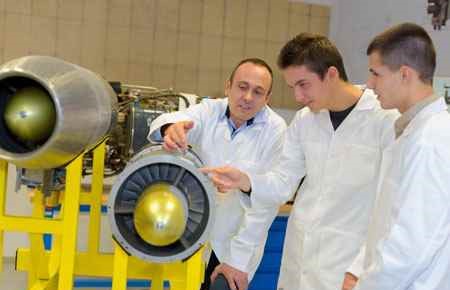
Aerospace, Aeronautical and Astronautical/Space Engineering Major
Aerospace, Aeronautical and Astronautical/Space Engineering programs prepare individuals to apply mathematical and scientific principles to the design, development and operational evaluation of aircraft, missiles, space vehicles, and their systems; applied research on flight and orbital characteristics; and the development of systems and procedures for the launching, guidance, and control of air and space vehicles.
A program in this major will likely include instruction in calculus, differential equations, physics and chemistry plus two years of engineering coursework. As well, aerospace engineering students can expect to take courses in the dynamics and control of aerospace systems.
What can you do with a major/degree in Aerospace, Aeronautical and Astronautical/Space Engineering?
With a degree in this field, you will position yourself well for a career in either private industry or the government. Some aerospace engineers find work in academia where they devote most of their time to research and instructing future aerospace engineers.
Industry-based engineers may find work at aircraft manufacturing or testing facilities as well as software development corporations. Government-employed engineers can find positions in NASA, the FAA, or the military.
Trade Associations and Professional Organizations in Aerospace, Aeronautical and Astronautical/Space Engineering
Professional associations are groups of specialists dedicated to topics in particular fields. Professional associations provide a wealth of online resources, some of which are geared specifically towards students. These organizations typically also host conferences and events, providing great opportunities for learning and networking across your field of interest.
Publications/Magazines in Aerospace, Aeronautical and Astronautical/Space Engineering